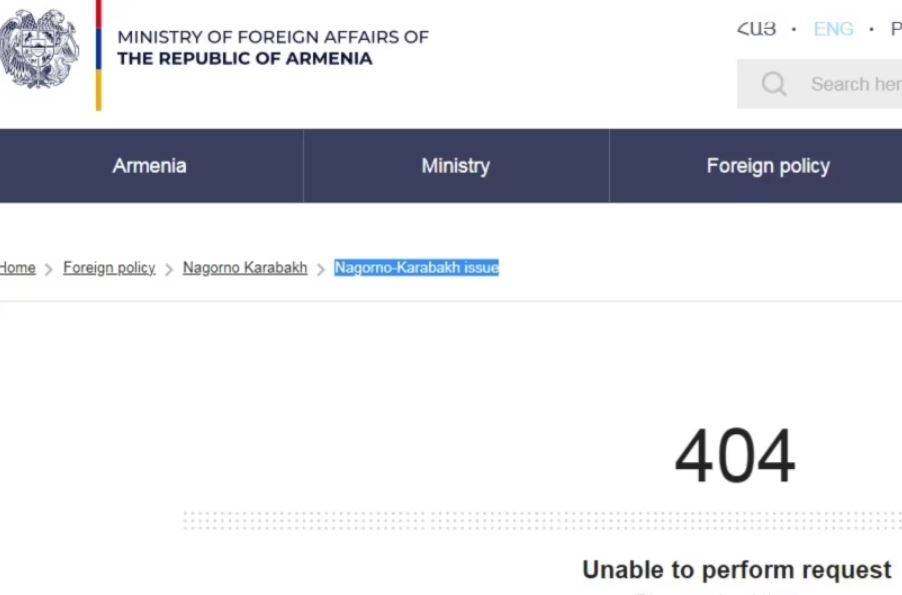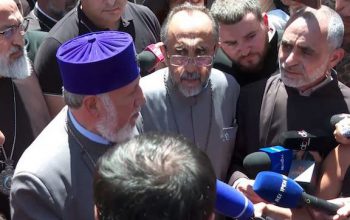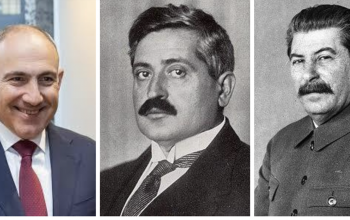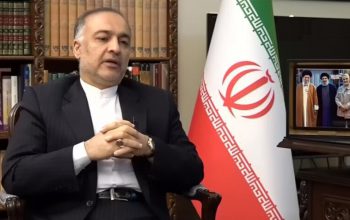Armenia’s Foreign Ministry has restricted access to information regarding the Artsakh (Nagorno-Karabakh) conflict on its official website following complaints made by a senior Azerbaijani official last week.
Elchin Amirbayov, the envoy for special assignments of Azerbaijani President Ilham Aliyev, raised concerns about the Karabakh-related section of the website during an interview with RFE/RL. Amirbayov highlighted the description of Karabakh as “an integral part of historical Armenia,” citing it as evidence of Armenia’s ongoing territorial claims to Azerbaijan.
In an article published by RFE/RL last Thursday, Amirbayov was quoted as saying, “The Armenian side acknowledges that this is the fact, but nothing is being done.”
As of Monday, the website section in question was inaccessible. However, the Armenian Foreign Ministry declined to confirm whether access was blocked due to pressure from Azerbaijan. Ministry spokeswoman Ani Badalian stated that the section was “not removed from the website” and that its content would be made available “in due course.”
Armenia’s stance on Karabakh underwent a significant shift before Prime Minister Nikol Pashinyan declared last May that Yerevan recognizes Azerbaijani sovereignty over the region. Critics of Pashinyan argue that this move preceded the Azerbaijani military offensive in September, which led to Baku regaining control of the territory and displacing its ethnic Armenian population.
Concerns have been raised about Pashinyan’s intentions following his recent statements about the need for a new constitution in Armenia to reflect the “new geopolitical environment” in the region. Analysts speculate that Pashinyan aims to eliminate the preamble to the current constitution, enacted in 1995, which references a 1990 declaration of independence and a 1989 unification act between Soviet Armenia and the then Nagorno-Karabakh Autonomous Oblast.
Azerbaijani President Aliyev reiterated on February 1 that Armenia must remove references to these historical events if it seeks peace with Azerbaijan. However, Pashinyan denied that his plans for a new constitution were influenced by Azerbaijan’s demands.
Aliyev has consistently referred to Yerevan and other parts of Armenia as “historical Azerbaijani lands.” He recently reiterated opposition to using Soviet-era maps to delineate the Armenian-Azerbaijani border and renewed demands for an extraterritorial corridor to Azerbaijan’s Nakhichevan exclave, passing through a strategic Armenian region. Armenian and European Union officials have interpreted his statements as territorial claims against Armenia.




